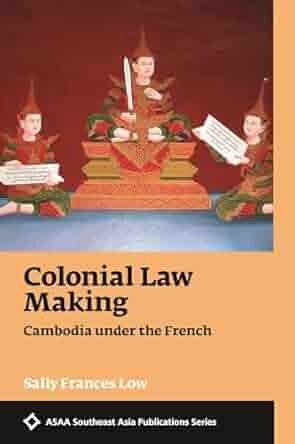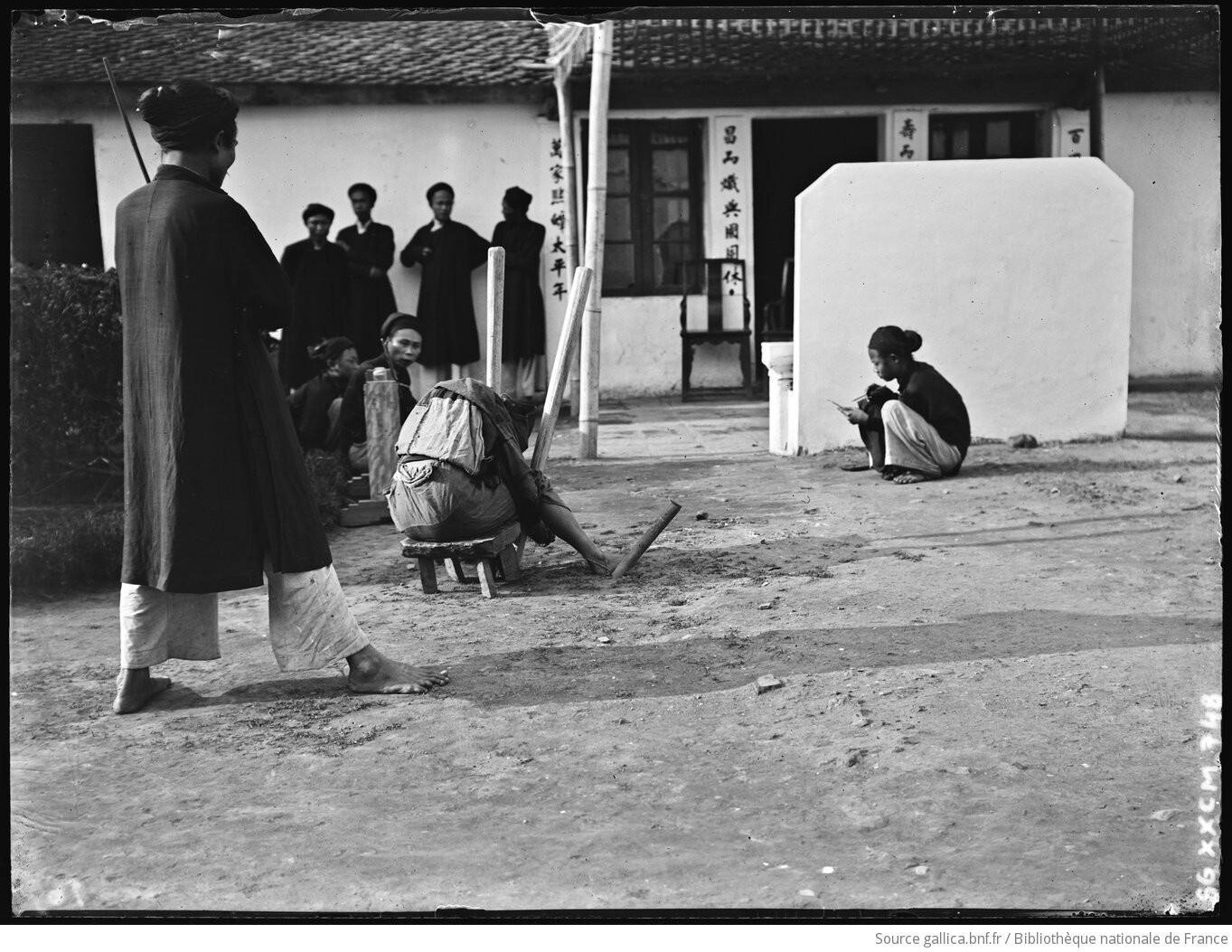Colonial Law Making: Cambodia under the French
by Sally Frances Low
Or how to make the unlawful into laws: the legal pretences of French Protectorat over Cambodia.

- Formats
- ADB Physical Library, paperback
- Publisher
- Singapore, National University of Singapore/ASAA.
- Published
- 2024
- Author
- Sally Frances Low
- Pages
- 288
- ISBN
- 978-9813252448
- Language
- English
[from the presentation] Covering a previously neglected area of Cambodian history, Colonial Law Making explores the structural forces and contingent exchanges that shaped colonial law in Cambodia and examines its post-independence colonial legacy.
The court of King Norodom and the temples of Angkor Wat became orientalist icons in the French colonial imagination, perpetuating an image of the Protectorate (1863 – 1953) as special and worthy of preservation. This contributed to exceptionalism in the way the Kingdom was colonized, including through law. Drawing on previously unexamined archival material, Sally Low presents a comparative case study of French approaches to colonial law, jurisdiction, and protection. Although the voices of non-elite Cambodians are largely absent from the archives, their influence on colonial law is evident as they resisted efforts to regulate their lives and their land. Low argues that the result was a set of state legal institutions and an indigenous jurisdiction that blended Cambodian and French notions of patronage and royal power as the source and authority for law.
This work is a case study of colonial law as an instrument of control and administration in an indirectly ruled colony. It adds depth to our understanding of the impact of European colonial law and the significance of different forms of colonial rule — direct, indirect, and unofficial. It is easily accessible for non-lawyers and is a must-read for those interested in the recent past of Southeast Asia and the countries that were previously colonized as French Indochina.
Drawing from works by Adhémard Leclère or Jean Moura, this research depicts the waning of Cambodian royal power under French jurisdiction, the popular revolts of 1895 – 6, the 1916 uprising against new tax, and how the judicial system wrought by the French colonial administration reacted to them.

The author’s presentation at TSS Lectures, Siam Society, 10 May 2025.
Tags: 1800s, 1900s, 1930s, French Protectorate, colonialism, post-colonial Cambodia, laws, King Norodom I, King Sisowath, King Monivong, King Norodom Suramarit, King Norodom Sihanouk
About the Author

Sally Frances Low
Dr Sally Frances Low is an Australian researcher in law history and a specialist in international development assistance.
From 1993 until 2013, Sally Low was a project designer, evaluator and manager in international development programs in Asia and the Pacific with an emphasis on the rebuilding of Cambodia after the civil war, in particular in the fields of law, human rights and gender equity. From 2009 until 2023, she also served as board member for the Women’s Information Centre and the Messenger Band, two Cambodian NGOs working to empower female garment workers.
At the same time, she completed in 2017 a PhD at Melbourne University Law School on the the administration of justice in Cambodia during French colonization (1863−1954), with historian David Chandler as thesis director. In December 2023, she published the book drawn from that research, Colonial Law Making: Cambodia Under the French.
In April 2025, Dr Sally Low opened the course ‘Modern History of the Cambodian Legal System” part of the RULE Dual Degree program at the Royal University of Law and Economy, Phnom Penh. She was also a
sessional lecturer on human rights law at Deakin University (Australia) in 2018.
